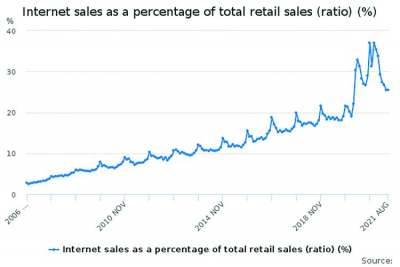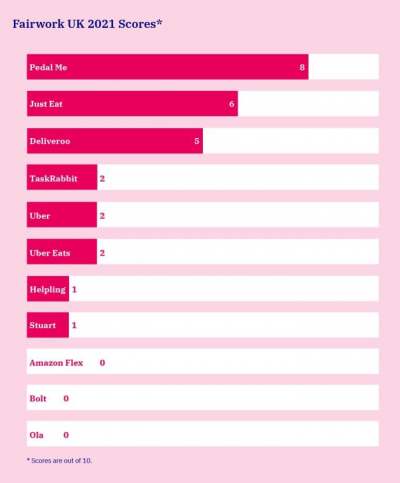This new guide on delivery companies is part of our boycott Amazon series. Since 2020 Amazon has offered Amazon Shipping, a direct postal service, in the UK.
With a rise in online sales and home-delivered food, there's more use of delivery companies by small and large businesses. In addition, as more people sell items direct from their homes, customers have some choice as to which delivery company will handle their parcels.
Who's failing to deliver on ethics?
For this shopping guide we have reviewed the seven largest delivery companies in the UK and the three biggest restaurant delivery platforms.
We look at workers’ rights including the role these companies play in employing gig economy workers, the companies' environmental impacts and their carbon emissions.
Companies in the market
The UK delivery market is highly concentrated, with the top five carriers accounting for 75% of all shipments:
- Royal Mail (35%)
- Amazon Logistics (15%)
- Hermes (10%)
- UPS (8%)
- DHL (7%)
Amazon Logistics is a new company, only launched in 2013, which has grown rapidly. Initially it only delivered Amazon’s internal parcels, but in 2020 it announced "Amazon Shipping in the UK, a new parcel pick-up and delivery service available to any business, whether they use Amazon’s e-commerce platform to sell on or not” and in 2021 was said to be the second largest courier in the UK.
Royal Mail was privatised over the period 2013-2015. The reason given for the privatisation was that money was needed to pay off the national debt (which incidentally is now almost 5% higher than it was during the financial crisis), as well as to “give the company access to private capital and improve its competitiveness”.
But the funny thing is, as in the rail sector, quite a few of Royal Mail’s competitor delivery companies are themselves state owned, just by foreign governments e.g., DPD is owned by La Poste, which is itself a French state-owned corporation. Similarly, DHL is 21% owned by KFW Group, a German government-owned development bank which is 80% owned by the Federal Republic of Germany and 20% owned by the States of Germany.
The UK delivery market
Over the last 5-10 years the market for the UK delivery sector has exploded, with the Covid-19 pandemic accelerating these already existing trends.






